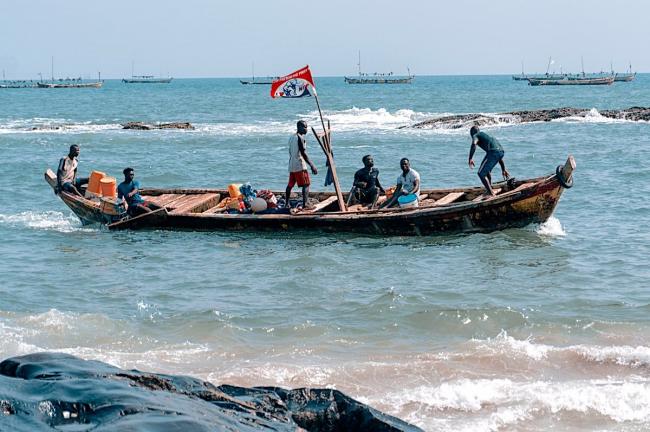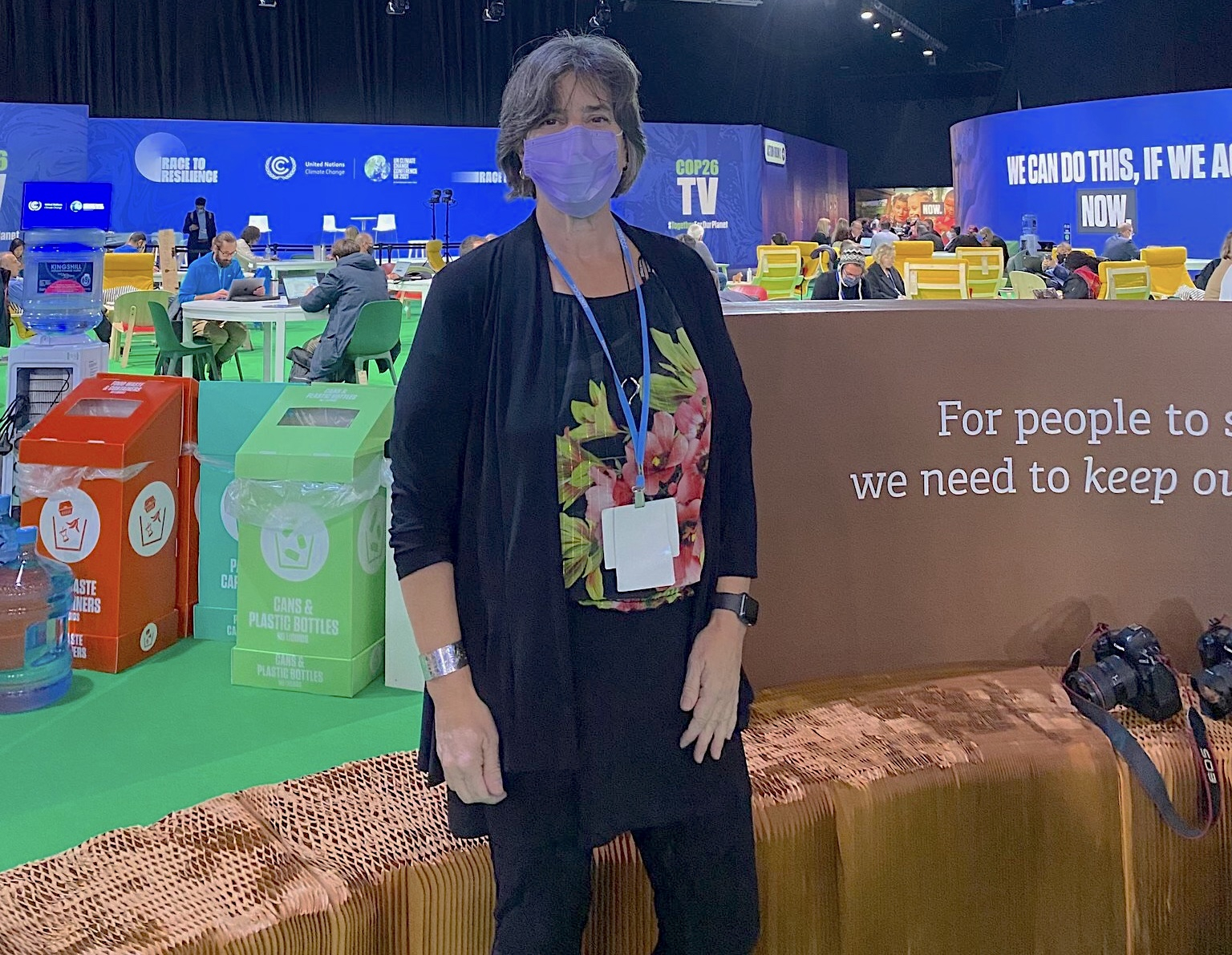Articles Menu

November 8th 2021
The world's oceans suck up a huge chunk of human-caused emissions, but their role in mitigation strategies and targets is largely absent from critical negotiations underway at the UN climate conference in Glasgow, Canadian scientist Anya Waite says.
A massive carbon sink, the oceans are doing much of the “heavy lifting,” sopping up as much as 40 per cent of our fossil fuel emissions over the past 200 years, said Waite, CEO of the Ocean Frontier Institute (OFI) at Dalhousie University in Nova Scotia.
“If the ocean wasn’t there, we’d already be burning up,” said Waite, who attended COP26 as co-chair of the international Global Ocean Observing System (GOOS) and as a delegate for the Intergovernmental Oceanographic Commission (IOC), the UN entity supporting global ocean science and services.
The oceans have also absorbed more than 90 per cent of the excess heat caused by greenhouse gases (GHGs) — storing heat equal to that in the Earth’s entire atmosphere in its top few metres.
“The ocean has essentially saved us from much more extreme climate impacts than we are already experiencing,” Waite said, noting most of the emissions data informing decisions at the Glasgow summit is land-based.
Alarmingly, there are signs the globe’s unsung heroes are being swamped and possibly starting to emit carbon, Waite said, something also not being factored into current global net-zero calculations.
The primary problem is there is a huge baseline data gap about what’s happening in the ocean, good or bad, and that’s bound to throw off any climate mitigation strategies or targets, she said.

“Unless we fully understand the trajectory of ocean carbon, we potentially won't reach our climate goals,” Waite said.
“So our aim is to make it really clear to policymakers that we simply can't reach our climate targets unless we fully understand what's happening in the ocean.”
“If the ocean wasn’t there, we’d already be burning up,” says Canadian scientist @AnyaWaite of the @OceanFrontier, who is lobbying at #COP26 for a multinational ocean observatory to ensure the globe can reach its climate targets. #COP26xCNO- Twitter
The solution is for nations to step up and establish a collaborative global observation system, something akin to the International Space Station, Waite said.
“We are asking nations to come together at the highest possible level to invest in a big, new system,” she said.
“A good analogy would be an ocean space station — something that's outside of an individual nation’s [authority], but that nations step up to fund.”
The cost would probably be around $1 billion, but it’s a far cry from the trillions of dollars climate change impacts are going to cause, she said.
“It's really just a question of getting policymakers to take that step change in investment, so we can really get the observation system to match the scale of the problem,” Waite said.
Fortunately, the scientific community is willing and capable — already doing the work as best they can on an ad hoc basis with limited finances, she added.
Ocean observers also have a constantly emerging array of technology and autonomous instruments, such as ocean robots or gliders, that can accurately measure ocean carbon relatively cheaply, Waite said.
“We also [have an] ocean-observing community that is mature and knows what to do,” she said.
The North Atlantic is ideal as a region for the proposed global ocean observation hub since it absorbs approximately 30 per cent of the planet’s ocean carbon uptake.
And as a country with three coasts and a strong national ocean science community, Canada would make a great champion for the hub, Waite said.
“It would be wonderful for Canada to step up and lead, but it can’t do this on its own. It has to be a multinational effort.”
Presenting at COP26 to the plenary and at side events, Waite said the idea was met with interest from delegates and colleagues from several countries, particularly the U.S. and the U.K.
Both Mark Carney, UN special envoy on climate action and finance, and Jonathan Wilkinson, Canada’s former environment minister and current natural resources minister, have previously expressed support for the idea.
Waite also managed to snag a quick chat at COP26 with Steven Guilbeault, Canada’s new minister of environment and climate change, who seemed receptive, she said, adding more in-depth discussions would need to take place.
But pitching an ocean carbon observatory in Canada is a surprisingly hard sell.
“The vast majority of our population is in the centre of the country,” she said. “So, I think it just takes a little more work to bring the story to people's awareness.”
In the international arena, the oceans' climate role is just beginning to be understood and seems to be on an upward trajectory, but lots of work remains to get the message across, said Waite.
Policymakers understand marine biodiversity is being threatened as oceans acidify, lose oxygen, and warm, but the idea that our climate initiatives will sink or swim based on how we monitor and treat the ocean is still a marginal idea, she said.
“But, in fact, the ocean is this massive engine of support for humankind, particularly in terms of its carbon absorption,” Waite said.
“And we urgently need to get that ocean [data] baseline resolved before we spend trillions of dollars on targets that may not be taking us towards our climate goals.”
Rochelle Baker / Local Journalism Initiative / Canada’s National Observer
[Top photo: Oceans don’t only provide a livelihood for fishers around the world, such as those pictured above in Ghana, but they also absorb a lion’s share of human-cased fossil fuel emissions. Photo by Seyiram Kweku / Unsplash]